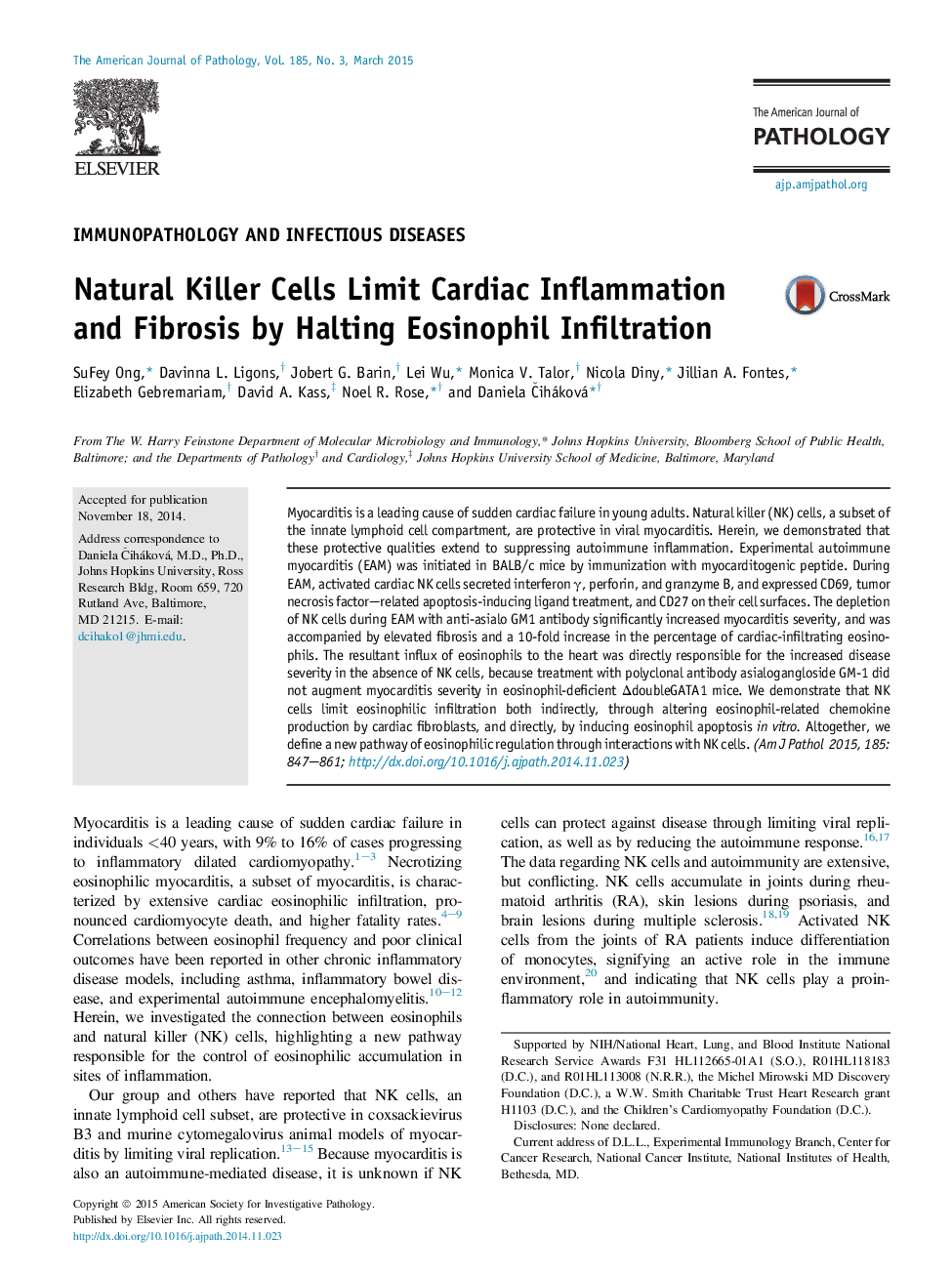| Article ID | Journal | Published Year | Pages | File Type |
|---|---|---|---|---|
| 5932540 | The American Journal of Pathology | 2015 | 15 Pages |
Myocarditis is a leading cause of sudden cardiac failure in young adults. Natural killer (NK) cells, a subset of the innate lymphoid cell compartment, are protective in viral myocarditis. Herein, we demonstrated that these protective qualities extend to suppressing autoimmune inflammation. Experimental autoimmune myocarditis (EAM) was initiated in BALB/c mice by immunization with myocarditogenic peptide. During EAM, activated cardiac NK cells secreted interferon γ, perforin, and granzyme B, and expressed CD69, tumor necrosis factor-related apoptosis-inducing ligand treatment, and CD27 on their cell surfaces. The depletion of NK cells during EAM with anti-asialo GM1 antibody significantly increased myocarditis severity, and was accompanied by elevated fibrosis and a 10-fold increase in the percentage of cardiac-infiltrating eosinophils. The resultant influx of eosinophils to the heart was directly responsible for the increased disease severity in the absence of NK cells, because treatment with polyclonal antibody asialogangloside GM-1 did not augment myocarditis severity in eosinophil-deficient ÎdoubleGATA1 mice. We demonstrate that NK cells limit eosinophilic infiltration both indirectly, through altering eosinophil-related chemokine production by cardiac fibroblasts, and directly, by inducing eosinophil apoptosis in vitro. Altogether, we define a new pathway of eosinophilic regulation through interactions with NK cells.
